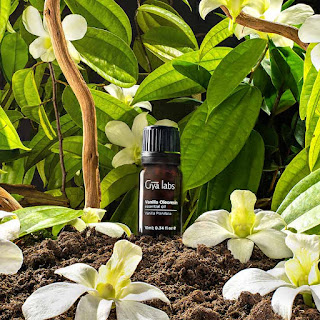Eucalytpus oil
Eucalytpus
essential oils are frequently used to improve health,
but they might induce allergic reactions in certain people. If you have a
history of skin responses to topical treatments or atopic dermatitis, you're
more likely to have an adverse reaction to an essential oil.
These reactions can range from irritation to sneezing
to, in rare situations, something more serious when using essential oils in a
diffuser or topically.
Some people who use essential oils fail to tell their
doctors about it, possibly because they don't realise the link between the oils
and such symptoms. But keep in mind that just because something is natural
doesn't rule out the possibility of negative side effects.
Common Essential Oil
While any Eucalytpus
essential oil might induce an allergic reaction, some
of the more prevalent oils to cause allergies include:
· Bergamot
essential oil
· Chamomile
essential oil
· Cinnamon
bark essential oil
· Jasmine
essential oil
· Lemongrass
essential oil
· Oil
of oregano
· Ylang-ylang
essential oil
Types of Allergic Reactions
Essential oils can cause allergic reactions whether
you rub them into your skin or breathe them in via the air. You could get the
following effects if you're allergic to an essential oil.
Contact Dermatitis :
Contact dermatitis is the most common adverse reaction
to essential oils. When you apply pure oils or high-concentration products to
the skin, this frequently happens.
Essential oil contact dermatitis can induce the following
symptoms:
- · Itching
on the skin
- · Redness
- · Blisters
- · Dry,
thicker skin that needs to be scaled
Contact your healthcare professional if you experience
any of the aforementioned symptoms after using an essential oil. They can
assist in determining what is triggering the reaction.
Allergic Rhinitis :
When diffusing essential oils, people with allergic
rhinitis (nasal allergies), especially those induced by weed pollens, should
exercise caution. Essential oils are derived from a variety of plant
components, some of which may include substantial allergies, particularly when
the plants' blossoms are employed.
When diffusing essential oils, you may suffer the
following symptoms if you have an allergy to them:
- · Itchy
nose or eyes
- · Sneezing
- · Stuffy
nose
- · Runny
nose
- · Mucus
in the throat from nasal drip
Even if you don't have an allergy, essential oils can
induce the aforementioned symptoms. The oils' strong scents can sometimes
irritate the nasal passages. Your doctor can help you figure out if your
symptoms are caused by an allergy or irritation.
Anaphylaxis :
Anaphylaxis is a life-threatening allergic reaction
that necessitates prompt medical attention. Although anaphylaxis from Eucalytpus
essential oil allergies is uncommon, it has been
reported.
Symptoms can start off minor and soon escalate to more
significant issues. These signs and symptoms include:
- · Trouble
breathing
- · Hives
- · Tightness
of the throat
- · Abdominal
pain
- · Nausea
and vomiting
- · Diarrhea
- · Dizziness
and/or fainting
- · Low
blood pressure
- · Fast
heartbeat
- · Feeling
of doom



Comments
Post a Comment